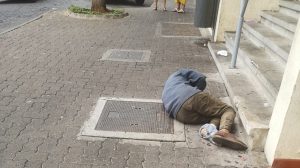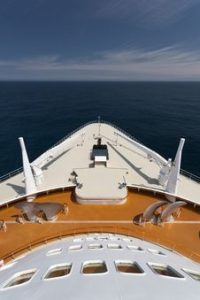“The Regional Government is convinced that the greatest challenge facing Madeira is the challenge of competitiveness. Making our economy competitive, able to thrive in the global economy, is the key to our future.” Stated Rogério Gouveia, Regional Secretary for Finance, at the closing of the III conference on ‘The Autonomous Region of Madeira and fiscal competitiveness.’
Believing that “it is in this exchange that decisions and resolutions are affirmed, which guarantee the pursuit of the integrated development of the Region,” Rogério Gouveia highlighted the “importance of this act, since it materializes the programmatic option of the Regional Government with regard to the dynamization of the regional economy, providing it with conditions that enhance fiscal competitiveness and investment attractiveness, indispensable to the creation of wealth and, from the outset, assumed as a priority.”
He recalled that the Region has been “for a long time, assuming the pursuit of the means and conditions for the deepening of regional tax competencies, namely legislative,” which involves the “clear and definitive definition of its own tax system. A system that makes it possible to define and implement tax instruments and mechanisms, which allow us to aspire to true global tax competitiveness and the consequent profits, towards a more attractive and developed region,” he specified.
He also explained that although in a framework of the unicity of the tax system, what the Regional Government defends “is a system clearly adapted to the specificities of the region, specifically to its economic and social reality and the constraints determined by its size and insularity, namely a regional tax system of its own, which does not limit tax rates, nor the tax benefits to be granted to companies and populations, at the level of taxation in force in the mainland.”
“What we want is the ability to reduce our taxes, adapt and create tax incentives, in a country where the State truly complies with the Principle of Territorial Continuity and its constitutional obligations,” he continued.
Thus, the Regional Government “wants to have the possibility of transforming the region into a low-tax territory, extending, for example, the benefits of the Madeira Free Trade Zone to the entire regional territory.” To this end, the Government Programme, approved two weeks ago by the Regional Legislative Assembly, “materialises the reformulation of the Regional Finance Law, through a proposal for revision that will seek to reach the Assembly of the Republic, in cooperation with the Autonomous Region of the Azores.”
In terms of economic development in circumstances where “there is no true autonomy,” the regional secretary recalled that “for eight consecutive years, tax measures have been implemented, which grant unique incentives to companies, seeking to make the region more attractive to entrepreneurs and investors, with the consequent repercussions on the modernization of the economy and job creation.”
Rogério Gouveia also assured that “the Regional Government will continue to strive for the consolidation and development of the International Business Centre of Madeira, as a decisive and privileged instrument for the realization of the capital interests of the Region – and, consequently, of the country – both in attracting foreign investment, in the diversification and modernization of our economy, as well as in the in the internationalization of our companies and in qualified and well-paid employment.”
On this subject, he considers it “inadmissible that the IBC has authorization from the Community bodies to continue receiving companies until December 2026, under the regime in force, and that it is by national will that this revocation is made only until 2024, which could jeopardize the registration of new companies, thousands of jobs and the loss of important tax revenue.” Therefore, he stressed, the “region will continue, in this way, to raise awareness among national political agents of the importance of the International Business Centre, as a strategic instrument of national interest and to promote its defence before European bodies, in full respect of the special status of the Outermost Regions.”
Samantha Gannon
info at madeira-weekly.com




